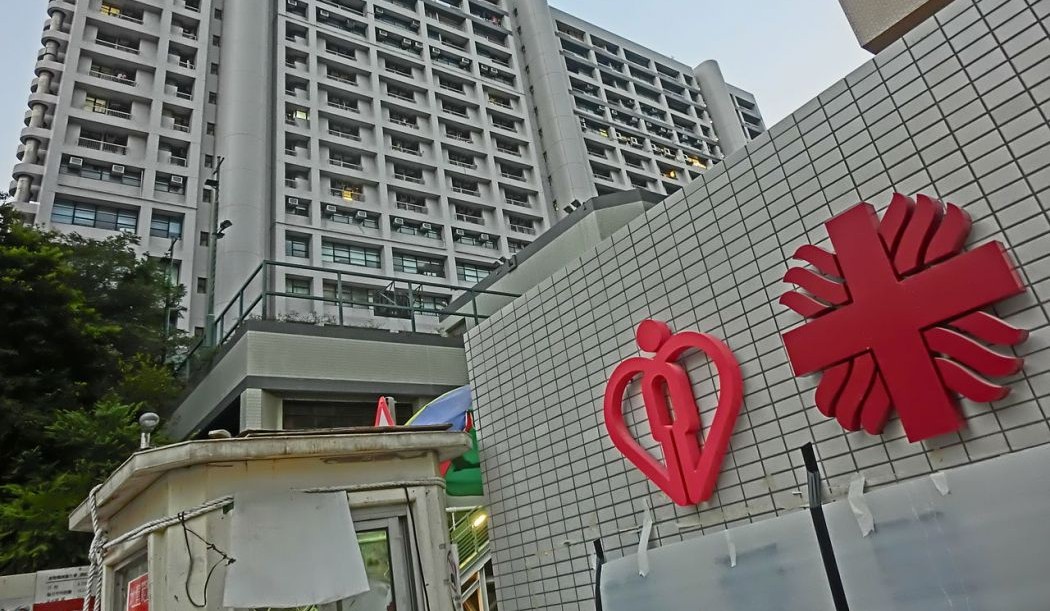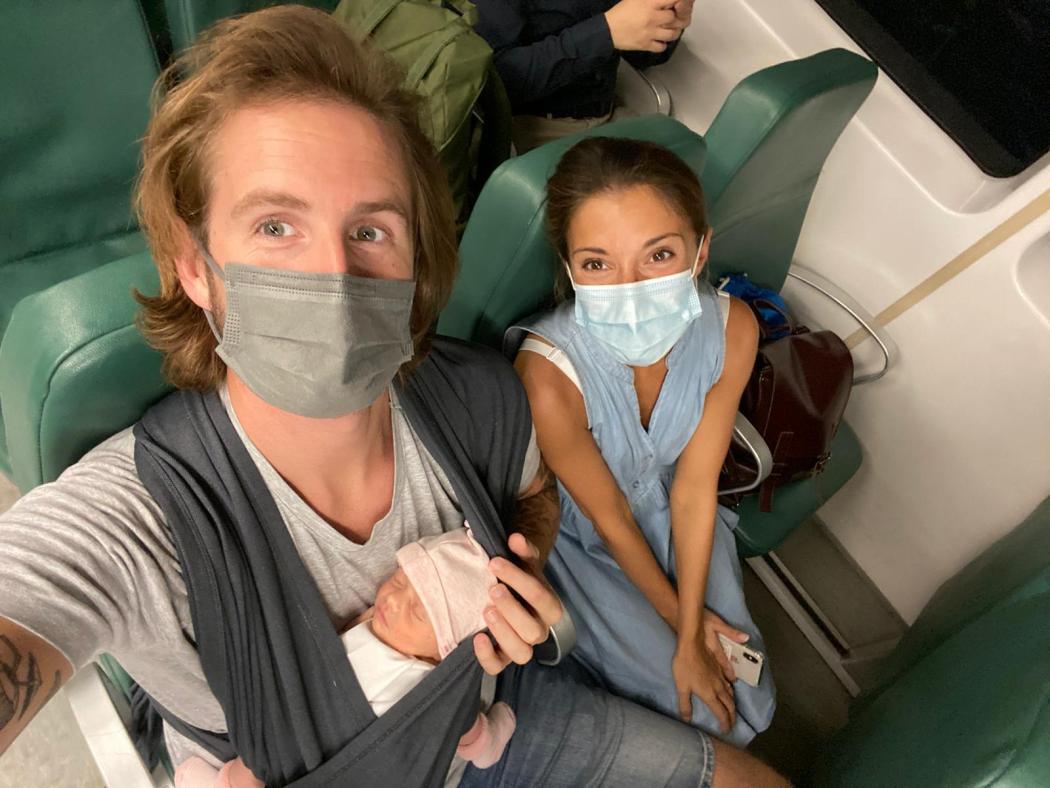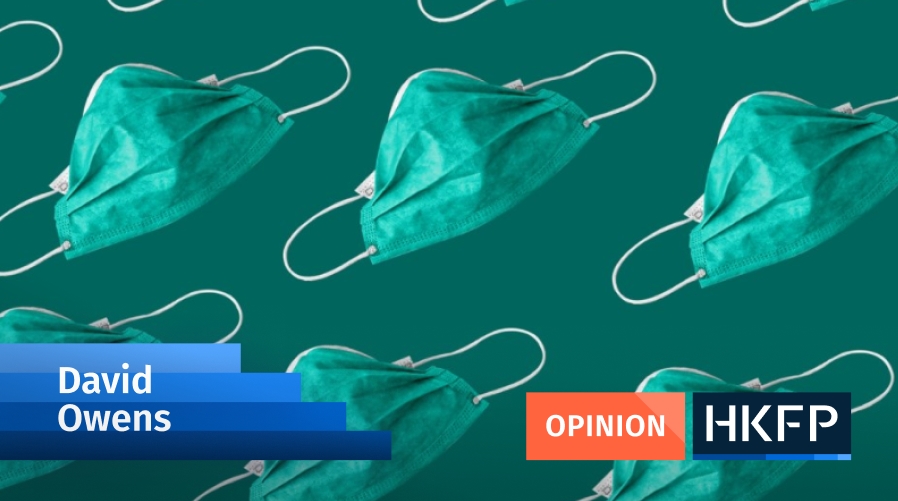Holly Wong was in her 35th week of pregnancy. As she looked back on the birth of her son, now aged two, she knew the labour would not be easy.
“For my first child, I had a very long labour for three days and it got quite complicated. I wouldn’t have been able to do it without my husband’s support,” said Wong, 36, a yoga teacher.

But the ordeal would become even more challenging when she learnt from a mothers’ support group on WhatsApp that because of Covid-19, Hong Kong’s public hospitals no longer accept the presence of companions during delivery.
“For me, it’s quite traumatic to think about going into labour alone. If I don’t have a birth partner with me, I would give up sooner,” said Wong.
Before Covid-19, at least one companion — a partner, family member or friend — was allowed in the delivery room. But the Hospital Authority suspended the rule on January 26 when the first wave of coronavirus hit Hong Kong.
Instead, whether a companion is allowed in during childbirth now depends on the number of Covid-19 cases on the day of delivery, a public hospital gynaecologist told HKFP. The policy makes it difficult for expecting mothers to know ahead of time whether their spouse could keep them company on their big day.
The city is now suffering a fourth wave, recording 90 new infections on Thursday to take the tally to 6,589 confirmed cases and 111 deaths.
“The ban was not publicly announced by the Hospital Authority. It was not on the website. You could only know it when you arrive at the hospital,” said Wong angrily.

She is one of many expectant mothers calling for a rethink of what they describe as an “uncompassionate” decision.
The World Health Organisation suggests that a companion of choice during labour and childbirth provides women with practical and emotional support.
“They can bridge communication gaps between a woman in labour and the healthcare workers around her, offer massage or hand-holding to help relieve pain, and provide reassurance to help her feel in control,” said the WHO.
The Hospital Authority has not responded to HKFP‘s request for comment.
“I understand (the Hospital Authority) is trying to protect the health of their staff and patients. But it’s such an easy, simple solution — just to test the mum and dad when they come into the hospital. If they test negative, everything’s normal, right?” Wong added.
A matter of cost
Lindsey Ford, 32, who was due to give birth in six weeks when she talked to HKFP, said she had contacted the patient relations manager at Queen Mary Hospital about the rule.

“The reply went, ‘If you don’t like this scheme, why don’t you go to a private hospital?’” Ford said. “I’m very shocked that the public hospitals couldn’t give you such basic human rights. If you want it, you really have to pay for it.”
In Hong Kong, the cost of giving birth in a heavily subsidised public hospital is HK$500 (US$64.50) compared to around HK$100,000 (US$12,902) in a private hospital.
“It’s not only the inability to have a birth companion but not being able to have visitors when mothers are in the wards and babies admitted into the neonatal unit which is very stressful,” said Dr Ip Lai-sheung Patricia , the vice-chair of the Baby Friendly Hospital Initiative Hong Kong Association.
“A companion during childbirth would boost a mother’s confidence and reduce the chance of drug-induced labour.”

“What I would like to see is the adoption of WHO recommendations regarding childbirth care during the pandemic, such as mothers can still have birth companions, testing the companions for Covid-19 if necessary.”
A recent article in the Hong Kong Medical Journal headlined “Effect of Covid-19 on delivery plans and postnatal depression scores of pregnant women” found that measures to limit the spread of the pandemic have led to more symptoms of postpartum depression.
Unlike Wong and Ford, Caterina Verna, a sales manager in her early 30s, was allowed the companionship of her husband back in October, when coronavirus restrictions were temporarily relaxed.

There were initial complications with the birth of Verna’s daughter Olivia: “For me, emotionally speaking, it was a terrible moment. But at least I had my husband who could be with me and talked to the doctors, so I didn’t get lost,” she said.
“The moment when the baby is born, a new family is born. It’s important to be all together at that moment.”
Support HKFP | Policies & Ethics | Error/typo? | Contact Us | Newsletter | Transparency & Annual Report | Apps
Help safeguard press freedom & keep HKFP free for all readers by supporting our team















